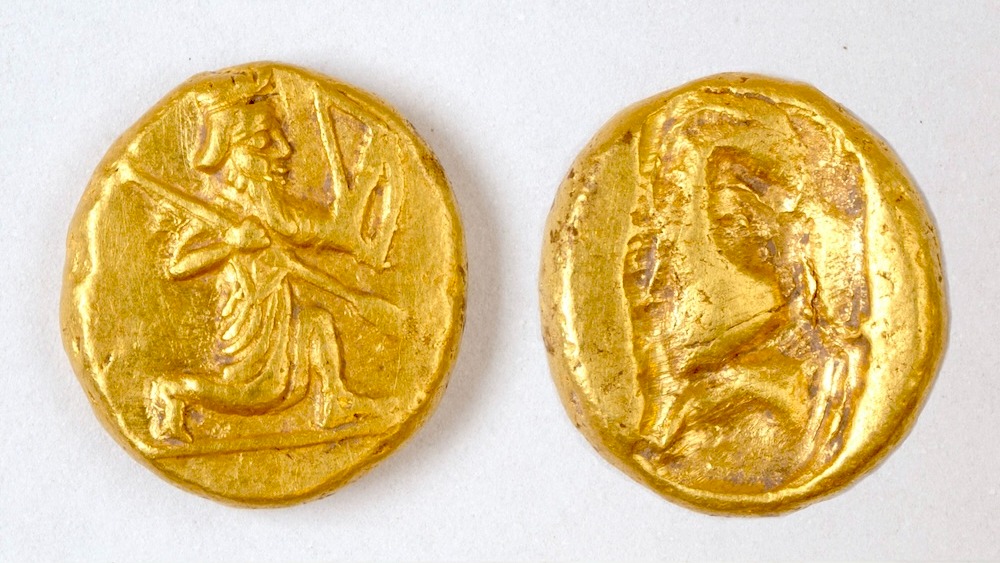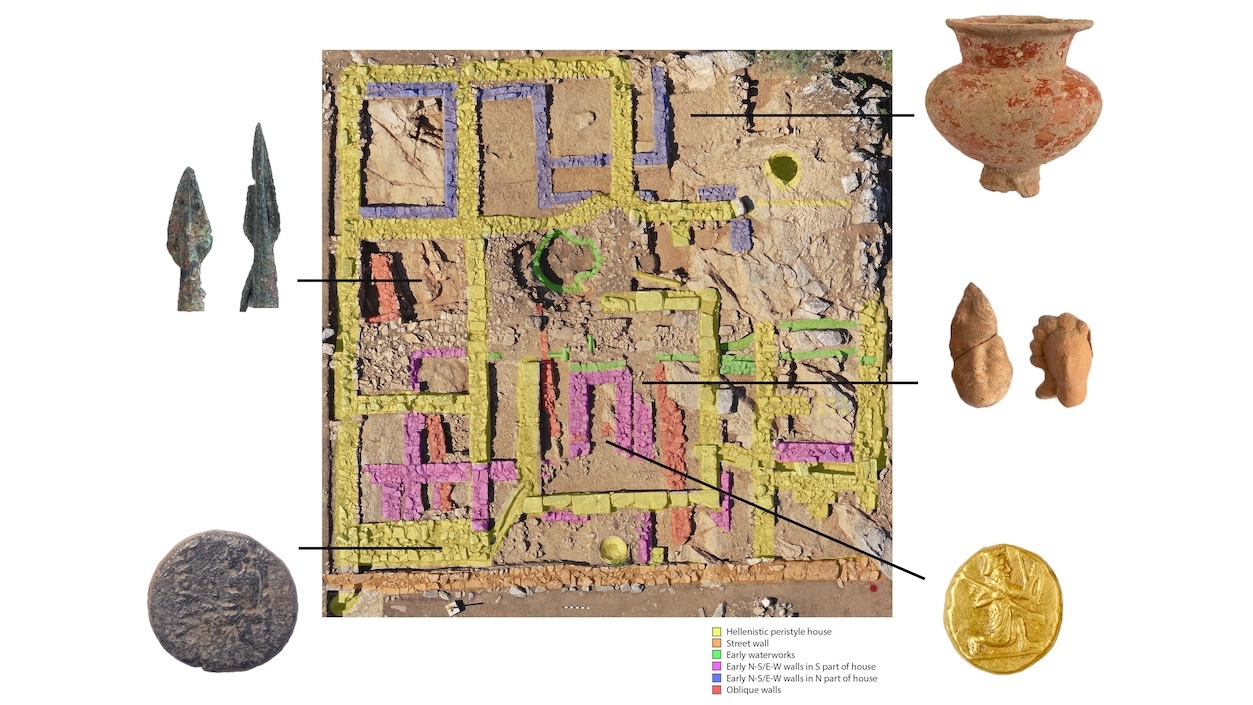Pot overflowing with gold coins discovered in ancient Greek city in Turkey
The coins were found beneath a home and were likely hidden by mercenaries.

Archaeologists have discovered a pot of buried treasure overflowing with ancient Greek coins in Turkey.
The gold coins were found inside a room beneath a home in Notion, an ancient Greek city in western Turkey. They feature the figure of a kneeling archer, a design element used for the Persian daric, a gold coin issued by the Persian Empire. The currency was likely minted in Sardis, located 60 miles (97 kilometers) northeast of Notion, according to a statement from the University of Michigan.
Researchers think the mercenaries used the hoard as payment, but it's unclear why they buried it.
"The discovery of such a valuable find in a controlled archaeological excavation is very rare," Christopher Ratté, a professor of ancient Mediterranean art and archaeology at the University of Michigan and director of the Notion Archaeological Survey, the project that led to the discovery the coins, said in the statement. "No one ever buries a hoard of coins, especially precious metal coins, without intending to retrieve it. So only the gravest misfortune can explain the preservation of such a treasure."
Related: 32 stunning centuries-old hoards unearthed by metal detectorists
A few stylistic clues indicate that the coins were struck sometime during the fifth century B.C. — a time stamp archaeologists are using to help uncover the sequence of events that led to the treasure's burial.
"This hoard will provide a firm date that can serve as an anchor to help fix the chronology of the (entire sequence of coins)," Ratté said. "According to the Greek historian Xenophon, a single daric was equivalent to a soldier's pay for one month."
Sign up for the Live Science daily newsletter now
Get the world’s most fascinating discoveries delivered straight to your inbox.
In the past few years, the site has been a hotbed for artifact finds, including pottery fragments, also from the fifth century B.C., hidden "in earlier walls incorporated into the foundations of the house," which dates to the Hellenistic period, according to the statement.

The Hellenistic period occurred after the death of Alexander the Great in 323 B.C. and lasted until the conquest of the final Hellenistic kingdom by Rome in 31 B.C. During the sixth century B.C., Notion was incorporated into the Persian Empire along with other Greek cities. In the early fifth century B.C., it was freed from Persian rule for a time, only to be reintegrated into the empire during the fourth century B.C., according to the statement.
Between 430 and 427 B.C., a group of Persian sympathizers, as well as Greek and "barbarian" mercenaries, occupied Notion. During that time, the Athenian general Paches killed pro-Persian mercenaries, prompting Persian sympathizers to be expelled from the city as the Athenians took control, according to the statement.
Ratté said that these events could have led to the burial and eventual loss of the hoard.
Jennifer Nalewicki is former Live Science staff writer and Salt Lake City-based journalist whose work has been featured in The New York Times, Smithsonian Magazine, Scientific American, Popular Mechanics and more. She covers several science topics from planet Earth to paleontology and archaeology to health and culture. Prior to freelancing, Jennifer held an Editor role at Time Inc. Jennifer has a bachelor's degree in Journalism from The University of Texas at Austin.









